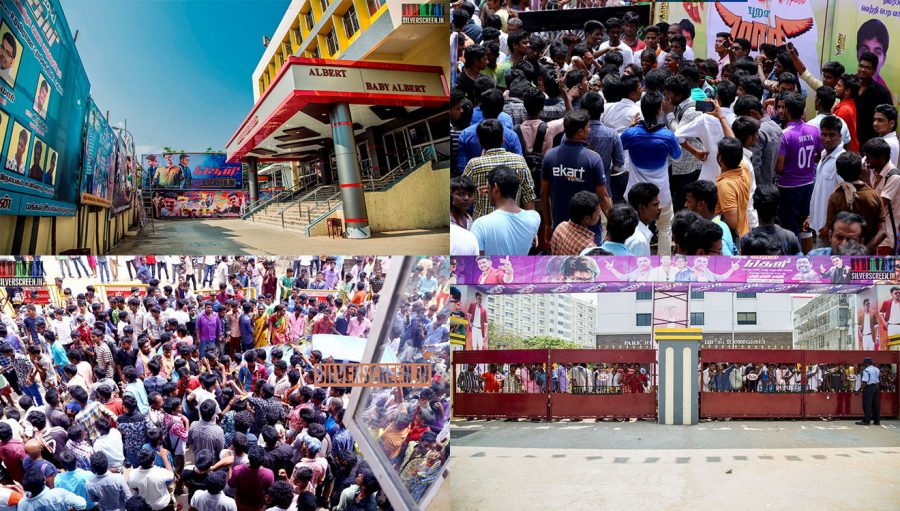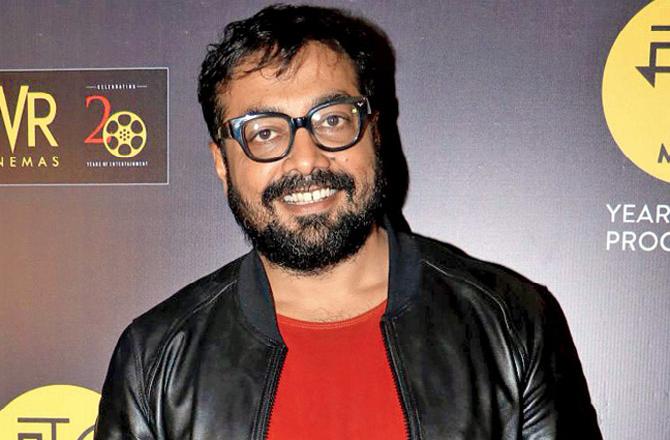When the FEFSI held a strike last month over the issue of wages for its technicians, the TFPC, in a media interaction, declared that wages would be fixed based on a producer’s budget. Following this, FEFSI general secretary Angamuthu Shanmugham, a few industry insiders, distributors and theatre owners demanded that the pay of the male leads (or heroes) be revised accordingly. Now, as the strike enters the 12th day, we speak to a few people in the know who consider it only fair that the heroes – generally with a fixed salary that producers try to accommodate – bear the brunt of the decision as well.
Announce the loss, too
Distributor Tirupur Subramaniam, in a conversation with Silverscreen, declares that the lofty sum that is offered to the male leads is partly due to the industrial trend of not announcing the losses incurred by the producer. “When a film is made on a Rs 50 crore budget, even if it is a blockbuster hit, the return would still be only Rs 40 crore, with a loss of Rs 10 crore to the producer. But the announcement would be made in such a way that it would seem like the movie had earned a profit of Rs 40 crore. Only when producers openly talk about their loss just like how they talk about profit, the heroes would understand the reality. Only then they would know that they cannot double the salary in their next film as his previous producer had incurred a loss. This would also help a new producer understand the market value of an actor,” says Subramanian.
Responding to these demands, Vishal had avowed to revise the salary of male leads by establishing a ‘transparent ticketing system’, and the concept of open box-office records. Panneerselvam of Rohini Multiplex Chennai, analyses the practicality of such initiatives. “Films with the same hero will have different box-office collections as there is no guaranteed revenue for a hero here. Also, since there are no records, remuneration for the hero would have to be revised multiple times. We can prepare a record only a month after the film’s release, and by then, the actors would have moved on to other projects. Theatre associations have been suggesting for a long time now that the producer can actually allot a few areas (of revenue) to heroes apart from the initial payment. Then, they can collect the profit as remuneration post release – that way, the loss incurred (if any) is not borne just by the producer.”
Heroes should help out producers: Tirupur Subramanian
Producers and actors silently part ways when a movie flops, says Subramanian. “A director and an actor may work together for the fourth or fifth time, but producers and actors won’t work together after a film fails. This was not the case during the days of MGR and Sivaji, though. MGR had worked with Devar Films in over 29 movies. If one movie flopped, he would reduce his salary for the next and help the producer. None of the new age actors extend this gesture.”
Revenue sharing should be introduced: Producer Satish
Producer Satish says that revenue-sharing is not something that is practised in Kollywood. “Heroes can receive an initial payment from the producer and share the revenue if the film makes profit. So that heroes, whose remuneration is a large part of a film’s budget, will get to share the responsibility of a film’s outcome. Tollywood and Bollywood work that way.”
Draw up a salary chart for heroes: Distributor Saravanan
Distributor Saravanan wants the TFPC to draw up a payment chart for heroes as well. “TFPC has drawn up a chart and fixed payments for daily wage workers in the industry. Likewise, they have to revise the heroes’ salary too. They have to decide based on the actor’s recent performances, original box office collection and consistent hits. Only the TFPC can solve the issue. That too, with Vishal being a member of both Nadigar Sangam and Producers’ Council, he can handle this very well.”
Wages to be fixed by guidelines
While the producer’s council fixes the salaries of actors in Mollywood, and the concept of revenue sharing is followed in Tollywood and Bollywood, there are no proper guidelines in the Tamil industry, says an insider on condition of anonymity. “There are no guidelines here to fix a hero’s salary. In Hollywood, there is the studio system by which an actor’s performance, market value, hit and flop ratio and many other things are analysed before fixing his wage. We don’t have any guidelines or a qualified production executive to handle this. Also, in Hollywood, only after 10 continuous hits, a hero’s salary will be reasonably increased. But here, we have a culture of increasing an actor’s salary for each and every hit film,” he rues, adding, “Moreover, there is a constant influx of new producers. So, to compete with other producers, they increase the salary of a hero to get him on board. Also, they come to the business with no background research. So if a small time producer want to cast a leading hero, he cannot make a film under Rs 5 crores as the hero’s salary would be above the entire budget allocated for the movie.”
Recommended
Busting the myth
Subramaniam adds, “It is a myth that films run because of a hero. Many popular production houses, who had produced films with leading heroes, have vanished now. Current producers would be millionaires if declarations of ‘Himalaya vetri’ and ‘vasool mannan’ are true. Producers should realise that they are actually paying more than the market value. The industry would be healthy if the pay of the male leads are revised.” Saravanan agrees, “The reality is such that even when the morning show of leading hero’s film is full, the subsequent ones are near empty because of bad word-of-mouth publicity. Only when producers, actors, and the Council understand this reality, will they be able to solve the issue.”
*****



